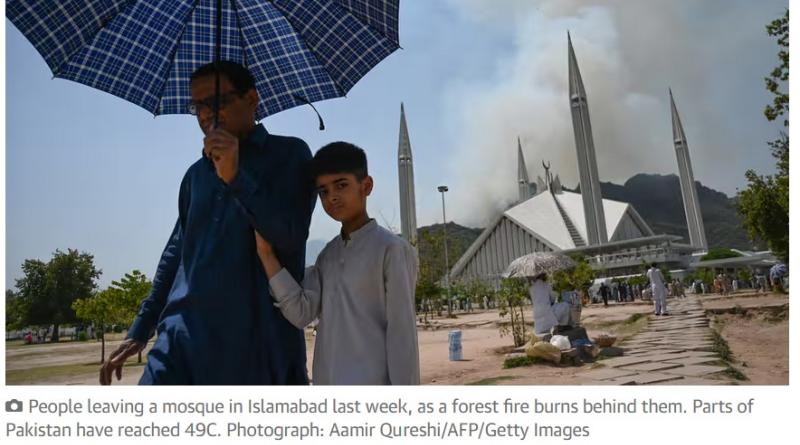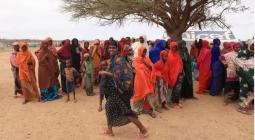Improving energy supply in Pakistan could save 175,000 lives, says Unicef

A study by the UN children’s agency has found that developing resilient energy systems to keep the power on in health facilities in Pakistan could prevent more than 175,000 deaths in the country by 2030.
The study comes as Pakistan is experiencing a blistering heatwave that has overstretched an already poor healthcare system. Last week, temperatures in various parts of the country reached highs of 49C (120F), causing a huge demand for power.
Unicef’s Powering Progress report said steps that could be taken to make energy provision better equipped to handle climate crisis conditions would contribute $296m (£232m) to Pakistan’s economy by 2044, through reducing infant and adult mortality and a lower disease burden.
Abdullah Fadil, Unicef’s representative in Pakistan, said: “Children depend on schools, health centres and safe drinking water for their survival, yet these facilities often don’t have the electricity supply to function optimally. As the current heatwave grips the country, electricity needs have skyrocketed leading to shortfalls that can endanger children’s health.
“This research underscores the importance of implementing resilient energy solutions. Clearly, this a win-win for everyone in Pakistan: children, families, teachers, private sector and the economy. And the urgency to turn to renewable energy is greater than ever before, especially for our children, who suffer the impacts of climate change daily.”
The report’s authors said “resilient energy” meant a reliable, flexible, accessible and quality power supply that can withstand grid outages and floods. More resilient energy across health, education and water services can also bring substantial gains for children and return triple the investment, Unicef said.
The climate crisis is taking a serious toll on power generation and the distribution of energy in Pakistan. In 2022, floods triggered by climate-induced monsoon rains killed 1,739 people and damaged half of the water infrastructure, including storage tanks, wells and supply lines.
This year, Pakistan recorded its wettest April since 1961 with more than double the usual rainfall for the month. Daytime temperatures in May have soared to 8C (14F) above average temperatures recorded for the month over the past 20 years, raising fears of flooding in the north-west parts of the country because of glacial melting.
Pakistan is also battling worsening forest fires. The authorities have urged people to stay indoors, hydrate themselves and avoid unnecessary travel in the daytime.
“Pakistan has an abundance of renewable resources and by investing in them we are tapping into a goldmine to help children,” Fadil said. “We need the private sector to play a bigger role as public sector resources will not be enough. This is everybody’s business.”




